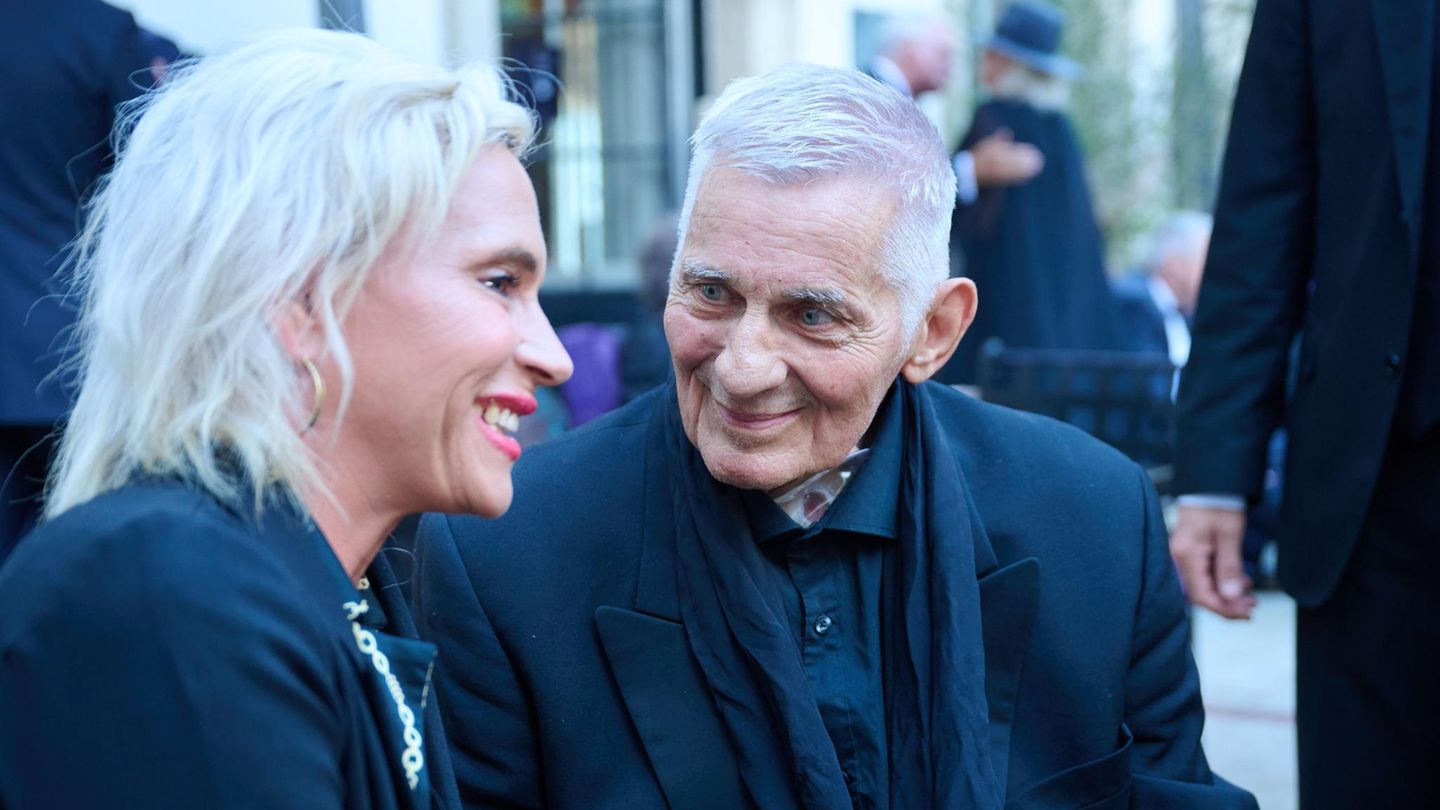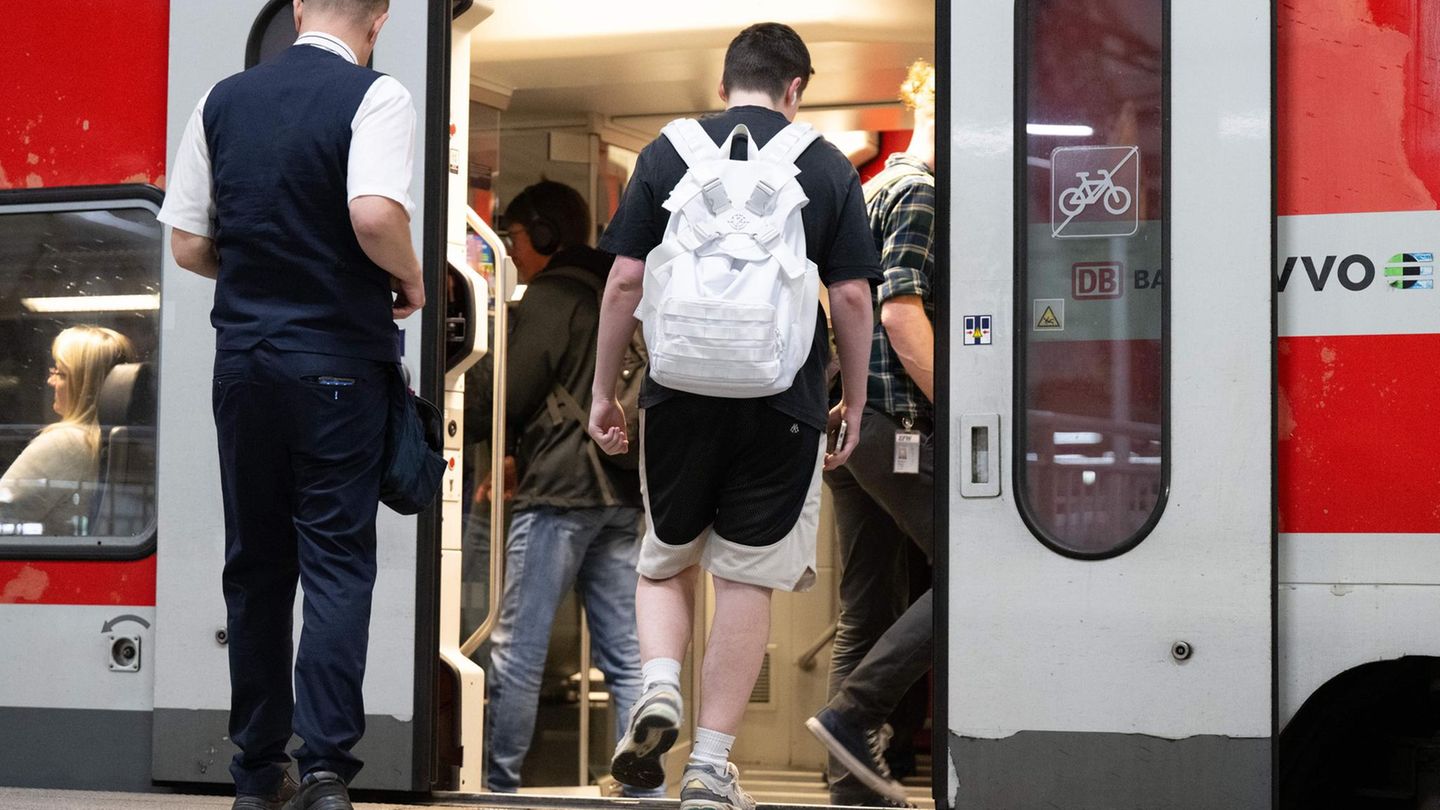Federal election
Why Scholz, Merz & Co. are missing from many ballot papers
Copy the current link
The candidates for chancellor Scholz, Merz, Habeck and Weidel will not appear on most ballot papers for the federal election. How can that be? And how is the head of government elected?
Some would like to stay in the Chancellery, others want to get in: Chancellor Olaf Scholz (SPD), opposition leader Friedrich Merz (CDU), Vice Chancellor Robert Habeck (Greens) and AfD leader Alice Weidel plan to lead the next federal government – and are campaigning for it for the votes of those entitled to vote. The names of the four do not even appear on most ballot papers.
No direct election of chancellor for the population
Because voters cannot directly elect Scholz, Merz, Weidel or Habeck as chancellor. According to the Basic Law, only the members of the Bundestag determine the German head of government. This must get the majority of parliamentarians behind it.
But because the composition of parliament is determined by the second vote in the federal election, in the end the voters decide, in a roundabout way, who will move into the Chancellery. The more votes a party receives compared to its competitors, the more seats in the Bundestag it can claim – and accordingly bring its candidate to the highest government office.
In the history of the Federal Republic there has never been a sole government by a single party, but always government coalitions. Various parties in parliament come together to achieve more than 50 percent of the seats in the Bundestag. After an election, they hold talks about a joint government program and, among other things, determine who should become Chancellor.
This is then elected with the majority of votes from such a coalition in the Bundestag. As a rule, the top candidate from the strongest alliance partner occupies the office.
Why some people could still vote for Merz, Scholz & Co
Even if the four cannot be directly elected to the Chancellery, some eligible voters in Germany still have the opportunity to vote for Merz, Scholz, Habeck or Weidel. Because they will all most likely apply for a seat in the Bundestag again.
In the last election in 2021, the CDU leader in the Hochsauerlandkreis (North Rhine-Westphalia), the Federal Chancellor in Potsdam (Brandenburg) and the Vice Chancellor in Flensburg-Schleswig (Schleswig-Holstein) won their constituencies. Weidel missed the direct mandate in the Bodenseekreis (Baden-Württemberg). There are a total of 299 constituencies.
If the politicians run again in 2025, they will be on the ballot paper as direct candidates in their constituencies – and can be elected with the first vote.
Political celebrities are often protected via the list
Since the Bundestag has at least twice as many seats as constituencies, other applicants are also eligible in addition to the first vote winners. These can enter the Bundestag via a party’s state list – but only if they were previously nominated there by their own people.
As a precautionary measure, if political celebrities do not win their constituency, many parties secure them a promising place on the list in a federal state.
If a party in a federal state wins more parliamentary seats with its second vote than it wins constituencies with its first vote, the list candidates move into the Bundestag – the top one first, then the second one and so on.
Names are also likely to appear in four federal states
As in 2021, AfD leader Weidel is again at number one on the AfD state list in Baden-Württemberg for the 2025 election – and will therefore be listed by name under her party on the ballot papers of the entire state in the second vote. A similar situation can be expected for Scholz in Brandenburg, Merz in North Rhine-Westphalia and Habeck in Schleswig-Holstein, should the three appear at the top of their parties’ lists.
However, the Federal Election Act does not require that the Federal Chancellor also be a member of the Bundestag. He or she doesn’t even have to be a member of a party. But without these requirements it would be difficult to imagine that a majority of MPs would vote yes.
Basic Law Article 63 on the election of Federal Chancellor
dpa
Source: Stern
I have been working in the news industry for over 6 years, first as a reporter and now as an editor. I have covered politics extensively, and my work has appeared in major newspapers and online news outlets around the world. In addition to my writing, I also contribute regularly to 24 Hours World.




